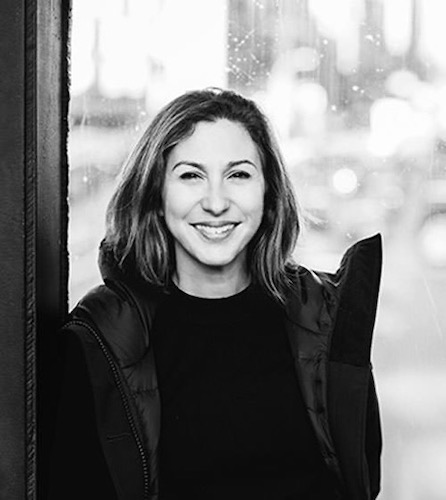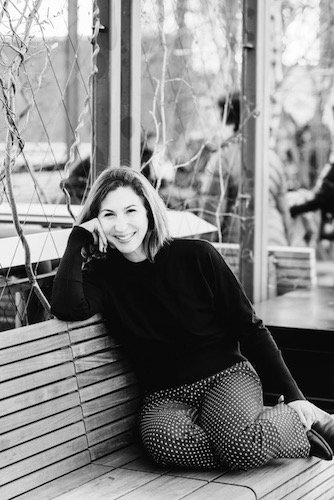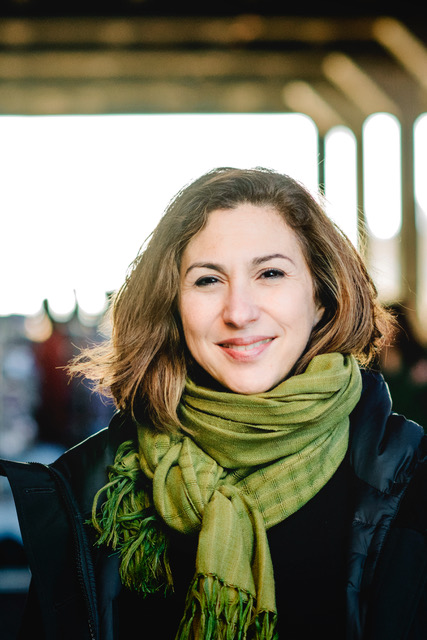Published October 11th, 2020
Interview
by Kathy Curto
Ines Rodrigues is a writer on the move. Even when she’s not.
The self-proclaimed seeker of sights and wonders, all recorded on the captivating blog, The Weekly Escape, Rodrigues is used to movement, travel, and exploration. On and off the page. These days, Covid-19 restrictions put a squeeze on her usual buzzing around and, initially, contributed to the drying up of “the creative well that is in all of us.”
"I thought it would be wonderful because I would have this time at home, my classes got canceled, and I said, 'Oh perfect! I'm going to write like crazy.' I wrote. I started thinking, but I could not get anywhere. I was foggy." But then, months into the pandemic, travel became necessary because of the loss of a loved one in Ireland. "I was a little scared and especially because it meant our whole family was going, but we had to go," Rodrigues said. So in July (masked and armed with sanitizer), Rodrigues, her husband, and their children went to Ireland for a family funeral. "We were very strict. No hugging and we spent a good deal of time in the hotel room, except for the services." But, despite the lack of physical contact and clear adherence to the rules, a different sort of affection surfaced. It was an affection for her ideas and how they are born. "I started to have ideas, to write stories, and feel like myself again. The movement is so important to me. The movement changed everything."

I've seen Ines Rodrigues in action, using her movement and energy to inspire writers at all levels. We are colleagues at The Writing Institute at Sarah Lawrence, and this has offered a chance to hear her read from her own novel and essays and watch as she welcomes students to read from their work during campus events. She exudes warmth and commands a presence in the front of a room; her bright spirit, inviting energy, and attention to language's complexities and beauty are front and center. This same penchant for language, storytelling, and an appreciation of diversity, feeds her work on The Scarsdale Salon, a vibrant, seasonal reading series featuring writers of all genres. She co-founded the group back in 2015 along with author and journalist, Preeti Singh. A recent partnership with the Salon de Belleville in Paris, France, only intensifies Rodrigues' commitment to our interconnectedness as writers and speakers of all languages.
Ah, language: a pleasantly loaded topic for Rodrigues and one she knows a lot about, both in theory and practice. We got together (but not really) on a recent afternoon in September, through Zoom, of course, to discuss what it means to write creatively in English, as a native Portuguese speaker, who speaks and teaches Italian, as well. On the move, for sure!
When you get ideas that come from that “creative well” that you speak about, in what language do they come to you?
Nowadays, most of the time, they come to me in English. My writing life is in English. But if I am in Brazil, sometimes they do come in Portuguese. Recently, I did start to translate, chapter by chapter, my book for my parents. I’m almost done with that. So now, maybe 10% of my ideas come to me in Portuguese.
You possess a beautiful trifecta of language skills: Portuguese, your first language, then English, your second, and then Italian, the language you write in, the one “you chose from my heart.” What do you mean by that and when did you first hear what your heart was telling you about Italian?
My contact with Italian is in another form, another compartment of my mind. But I bet if I am in Italy or start reading more in Italian, it would stir up ideas. If I have to choose a favorite language in terms of sound and beauty, it would be Italian. I’ve always wanted to speak Italian since I was very young. When I go to Italy, I feel so at home. I lived there as a student in 1994, all by myself, didn’t know anybody, and I fell in love with the place.
Along these same lines of language and identity, how about using another three-language speaker and writer to deepen this discussion? In Jhumpa Lahiri’s book, In Other Words, written in Italian and translated by Ann Goldstein, she, whose “mother tongue” is Bengali and who is an award-winning author of several novels all written in English, offers this about divided identity and language:
“Because of my divided identity, or perhaps by disposition, I consider myself an incomplete person, in some way deficient. Maybe there is a linguistic reason-the lack of a language to identify with. As a girl in America, I tried to speak Bengali perfectly, without a foreign accent, to satisfy my parents, and above all to feel that I was completely their daughter. But it was impossible. On the other hand, I wanted to be considered an American, yet, despite the fact that I speak English perfectly, that was impossible, too. I was suspended rather than rooted. I had two sides, neither well defined.”

How do Lahiri’s insights noted here make you think about your own experiences?
I find this very touching. I’ve always loved languages. They are part of our everyday life, of course, but different languages mirror our history and our culture. I think you incorporate a language just as much as speak it.
I think Lahiri probably felt divided, and I can understand that. This reminds me of growing up in São Paolo and the Japanese community there. Friends I went to school with would say, “When I am at school, I am Brazilian, but I am Japanese when I go home.” I can understand how this happens, why Lahiri felt like that, and where it might come from. There is a moment, though, when you study a language for a long time, and then you feel a switch.
Can you talk a little more about that switch?
That language becomes part of you. I started to feel natural to write in English, and nowadays, it definitely comes naturally to write in English. All my writing life is here in the U.S.
Can you talk about how you came to write your novel, Days of Bossa Nova?
I had the novel in my head for a while. Once my second child was in Kindergarten, I took a class at The Writing Institute. On the first day, I was so scared, terrified, and kept thinking, I’m not a native speaker. How am I going to do this? Then they said that we’d be producing fifty pages by the end of the term. I was more than terrified! I woke up early in the morning, stayed up late, took weekends, and wrote those fifty pages. That class helped me appreciate the flavor of my writing, my voice.
I also had a lot of research to do because it’s a work of historical fiction. The book was published in 2017, seven years after I walked into that first class.
Have you ever thought about the way your native language “feels” in your mouth? Croatian poet, Iva Ticic, noted in a February 2019 Tint interview with Jenna Brancolni:
“I think there’s something about your native language that feels like it’s been in your mouth for as long as you’ve been around. You can write in standard, as neutrally as possible, but that’s not very conducive to creative writing because you don’t want to be neutral.”
What do you think of this?
I totally agree with this. It’s like you get out of your old skin and into a new one. It’s the same with traveling and writing. It’s like you access a different side of yourself. I feel this happening. Traveling and writing in English activates something in me, something that is exciting and can lead to discovery. In a way, it was kind of like saying to myself I want to reinvent something in myself. And now I think in a way, that’s where the writer lives.
That’s where the writer lives. I love that, Ines. Okay, last question. What creative pursuits are you currently working on?
I teach and freelance for a local magazine here. I write for my blog every two weeks and try to be consistent. I started a second novel and working on it in my own time. I’m still trying to find the characters. I’m also in a writing group, and we meet weekly. It keeps me on track.
Just this week, I established my fall routine. I am going to have some days that will be more fluid, and I will write more. I’m excited!
For more on Ines Rodrigues, please visit her site: https://www.inesrodriguesauthor.com/

Supported by:


Comments on "A Lover of Language and Place — An Interview with Ines Rodrigues"
Please log in to submit a comment.
Login